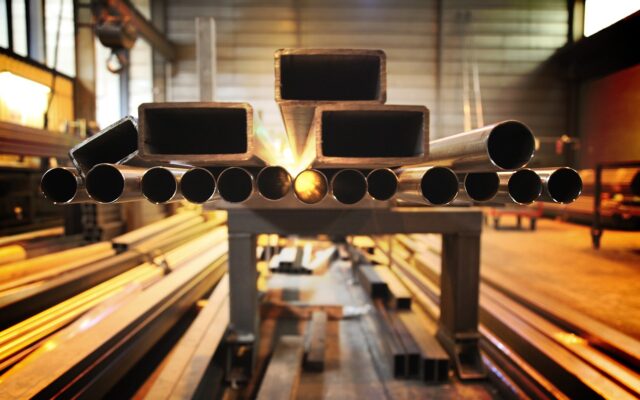- The World Trade Organization ruled the US’ Section 232 tariffs on steel and aluminum imports from China and three other countries are inconsistent with GATT 1994
- WTO says the US must make its “WTO-inconsistent measures” conform with its GATT obligations
- China’s trade law experts welcome the ruling as a victory for multilateralism, citing its great significance in a world with growing protectionism
The World Trade Organization has ruled that the United States’ Section 232 tariffs on steel and aluminum imports from China and three other countries were inconsistent with the General Agreement on Tariffs and Trade 1994 and cannot be justified under international trade rules.
The adjudicating panel’s ruling on four separate challenges released on December 9 concluded the US tariffs do not qualify as a national security measure under WTO rules.
The decision was welcomed by Chinese trade law experts who said that it is a victory for multilateralism and shows the strong resilience of the multilateral trading system, according to a China Daily report on December 12.
The experts cited the great significance of the ruling in a world with growing protectionism as, they said, some countries try to generalize the concept of national security for political purposes.
WTO’s adjudicating panel ruled on four separate challenges lodged by China, Norway, Switzerland and Turkiye (Turkey) against the US measures.
On the US-China dispute in particular, the panel concluded that based on the evidence and arguments submitted, it does not find the measures at issue “were taken in war or any other emergency in international relations” within the meaning Article XXI (b) (iii) of GATT 1994.
The panel recommended that the US make its “WTO-inconsistent measures” conform with its obligations under GATT.
The US in 2018 levied duties of 25% on steel and 10% on aluminum imports from China in 2018 under Section 232 of the US Trade Expansion Act of 1962, arguing that the measures were needed for national security purposes. The US also slapped a 50% duty on steel imports from Turkey.
Similarly, the US imposed the same level of duties on steel and aluminium imports from Norway and Switzerland, also for national security reasons. These countries’ challenges were also upheld by the WTO.
The WTO panel concluded that the additional 25% duties on derivative steel products and 10% on derivative aluminum products do not accord with the treatment provided for in the US schedule contrary to Article II:I (b) and Article II:I (a) of GATT 1994.
Zhao Hong, a professor at Peking University’s Law School and former chairperson of the WTO Appellate Body, said that the US move, as a matter of fact, was out of unilateralism. “It has set a terrible precedent of abusing the concept of national security for trade protectionism,” Zhao was quoted by China Daily as saying.
“The WTO ruling… is a great victory against unilateralism, and can also be viewed as a special review on the abuse of national security content of WTO rules,” she said.
The state newspaper also quoted Huo Jianguo, vice-chairman of the China Society for World Trade Organization Studies, as saying the ruling was significant and reaffirmed WTO authority in settling international trade disputes.
“The ruling has again showed multilateralism is still upheld by most countries. It is wrong for the US to generalize the concept of national security to disrupt normal economic activity of other countries,” Huo said.
“Global trade rules under the multilateral trading system allow some special measures in cases of national security, but they usually refer only to wars, or other emergencies in international relations, and should not be generalized and abused.”
He said the US cannot appeal the ruling to the WTO Appellate Body due to its own actions. The US has repeatedly blocked nominations of members to the appeals body, rendering it unable to hear any new cases.
A Ministry of Commerce spokesperson was reported as saying said in a statement on Saturday that China appreciates the objective and fair rulings of the WTO panel.
The spokesperson said China hopes the US will respect the panel’s decision and WTO rules to correct its wrongful practices as soon as possible, and meet halfway with other WTO members, including China, to safeguard the multilateral trading system.
China, Norway, Switzerland and Turkey all claimed that they were levied the tariffs by the US despite Article I of the GATT 1994 granting country exemptions for steel, aluminum and their derivative products.
They said the US conferred an advantage to products from Australia, Argentina, Brazil, and South Korea that has not been accorded immediately and unconditionally to like products from all other members, in a manner inconsistent with Article I:1 of the GATT 1994.
RELATED READ: WTO sees 2023 trade slowing sharply amid headwinds









